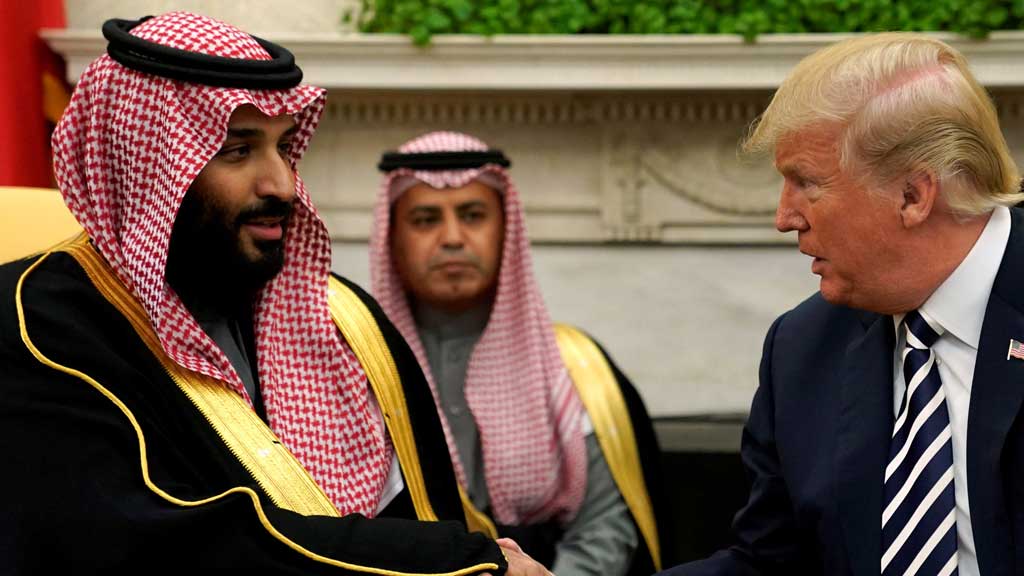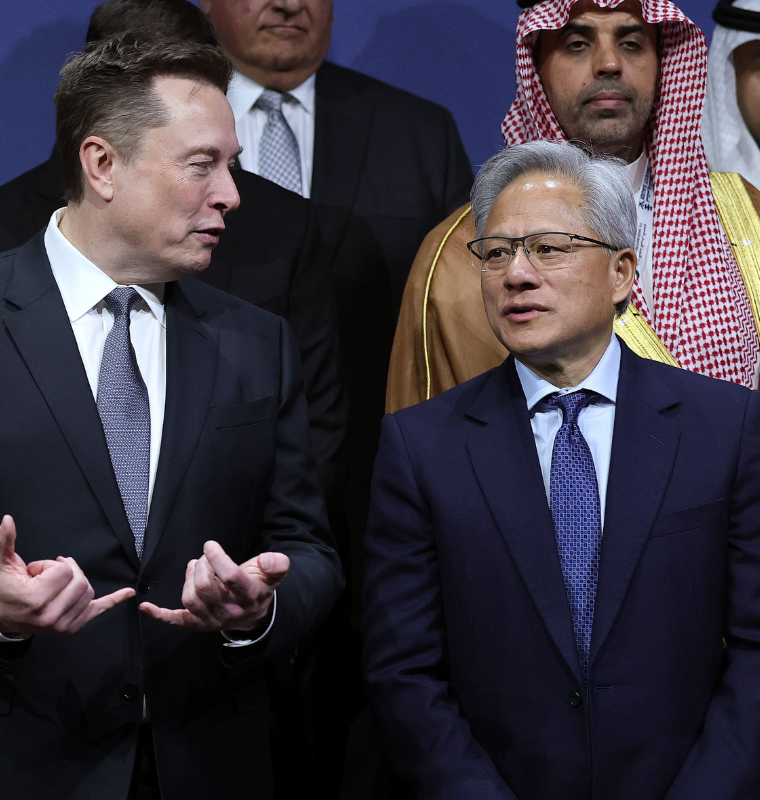U.S.–Saudi Mega Deals Face Uncertainty Despite Bold Announcements
U.S.–Saudi Mega Deals Face Uncertainty Despite Bold Announcements
By
Rachel Steinberg
Last updated:
November 20, 2025
First Published:
November 20, 2025

President Donald Trump hosted Saudi Arabia’s de facto ruler, Crown Prince Mohammed bin Salman, in Washington with full ceremonial display as both sides unveiled a sweeping set of strategic commitments. The discussions covered national security cooperation, civil nuclear energy collaboration and an ambitious pledge to deepen economic ties between the two countries. But despite the fanfare, analysts argue that the most eye-catching promises could take years to materialize — if they happen at all.
During the visit, Trump highlighted Saudi Arabia’s intention to raise its U.S. investment commitment from six hundred billion dollars announced earlier in May to a full one trillion dollars. The White House said the increase reflected “growing trust” and the strength of the bilateral relationship under the current administration. That one trillion dollar figure is nearly equivalent to Saudi Arabia’s entire 2023 GDP of one point zero seven trillion dollars, raising immediate questions from economists about feasibility and timing.
Crown Prince Mohammed bin Salman’s trip also carried political weight. It was his first visit to the U.S. since the 2018 murder of journalist Jamal Khashoggi, an incident that triggered widespread international condemnation. U.S. intelligence services concluded that the crown prince approved the operation; Saudi Arabia has consistently denied responsibility. Despite ongoing scrutiny, both Trump and MBS said they had concluded a “series of landmark agreements” designed to strengthen long-term strategic cooperation.
Still, experts noted the lack of clarity behind the trillion-dollar investment pledge. Economists pointed to similar global promises made in previous years — often without clear enforcement mechanisms or delivery schedules — suggesting the Saudi commitment may follow the same pattern. Analysts also highlighted the kingdom’s long-term development plans, which already require massive domestic capital allocation to megaprojects such as NEOM and Vision 2030 initiatives. With those obligations in mind, redirecting a full year’s GDP toward U.S. investments appears unlikely in the near future.
Alongside economic discussions, the two leaders explored one of the most sensitive potential agreements: the sale of American F-35 stealth fighter jets to Saudi Arabia. Reports indicate the kingdom is considering acquiring up to forty eight F-35s, a deal that would be worth many billions of dollars and significantly expand Saudi military capabilities. Trump said he had “approved a major defense sale package,” emphasizing that the arrangement would strengthen the U.S. defense industrial sector and reinforce Saudi Arabia’s preference for American equipment.
However, the F-35 proposal faces considerable political and strategic hurdles. Israel is currently the only operator of F-35s in the Middle East, and U.S. law requires that Israel maintain a “qualitative military edge” in the region. Israeli defense officials have reportedly expressed strong concerns that a Saudi F-35 fleet would undermine that advantage. Members of the U.S. Congress — many of whom hold long-standing pro-Israel positions — are also expected to scrutinize the deal closely.
Analysts caution that delivering advanced aircraft to Saudi Arabia would require far more than a White House announcement. They point to major unresolved issues, including Riyadh’s security relationship with China and its reluctance to formally normalize ties with Israel. Policy experts argue that Washington should not transfer F-35 technology until Riyadh meets several conditions, including aligning more closely with U.S. strategic interests and supporting broader regional stability efforts.
Political considerations also complicate the timeline. Analysts note that Washington and Riyadh still differ significantly on the question of a two-state solution in the Israeli-Palestinian conflict. Those divisions may give U.S. officials pause when determining how quickly — or whether — to move forward with a deal of this scale. Specialists in U.S. foreign policy emphasized that approving a sale does not guarantee delivery, given the extensive legal, technological and diplomatic steps required.
They also warned that congressional review could pose significant obstacles. Lawmakers may demand strict oversight of technology transfers, pilot training programs, and integration protocols for advanced systems like the F-35. Any disagreement during these stages could slow implementation or derail the arrangement entirely.
Experts conclude that although the U.S.–Saudi announcements signal evolving cooperation, both the trillion-dollar investment and the F-35 package face long, complicated paths ahead. Between political sensitivities, technological concerns and legislative oversight, these high-profile commitments may remain aspirational long after the headlines fade.
Popular articles
Subscribe to unlock premium content
How Adults Are Paying to Experience Silent Daylong Festivals for Mindfulness

The Rise of Ultra-Personalized Scent Memory Experiences Using Olfactory Therapy

Why Some Millennials Are Paying for One-Day Luxury Survival Challenges in Nature

How Adults Are Paying to Experience Silent Daylong Festivals for Mindfulness

The Rise of Ultra-Personalized Scent Memory Experiences Using Olfactory Therapy

How Adults Are Paying to Experience Silent Daylong Festivals for Mindfulness







.png)

